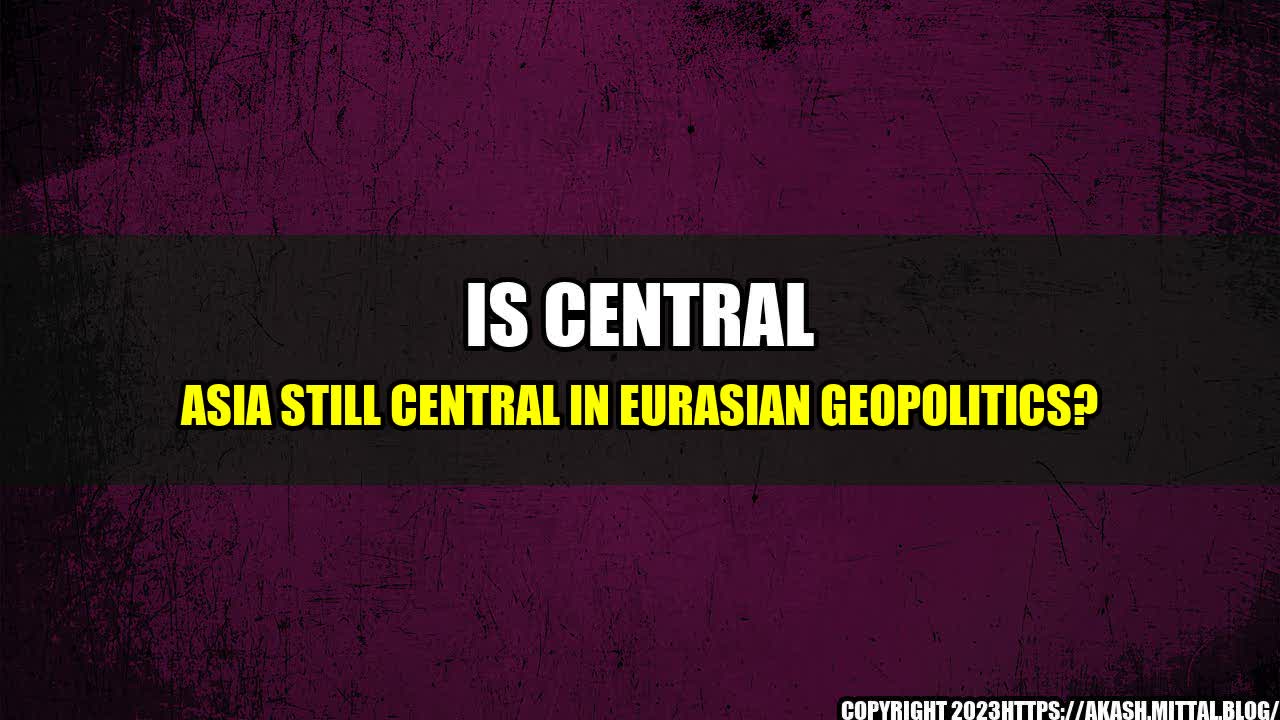Is Central Asia still central in Eurasian geopolitics?


There is an old saying: "He who controls Central Asia controls the world." It may be an exaggeration, but the region's strategic importance cannot be ignored. Central Asia has always been a crossroads of civilizations and cultures, attracting merchants, conquerors, and missionaries for centuries. It is also a land of vast natural resources, including oil, gas, and rare minerals.
In the early 1990s, a young man from Kazakhstan named Timur Bekmambetov came to the United States with only $300 in his pocket but a dream in his heart. He wanted to become a filmmaker and tell the world the stories of his people and their history. He worked odd jobs, slept on a kitchen floor, and studied at night to learn his craft. Years later, he directed the Hollywood blockbuster "Wanted," starring Angelina Jolie, and became one of the most successful directors in the world.
What does this story have to do with Central Asia's role in Eurasian geopolitics? It shows that the region has a wealth of human capital and creative energy that can be harnessed for the greater good. Central Asia may not have the military might or the economic clout of other regions, but it has something more valuable: a young, talented, and educated population that is hungry for success and eager to contribute to the world.
Despite these strengths, Central Asia faces many challenges and uncertainties in the coming years. The region's dependence on natural resources makes it vulnerable to fluctuations in global commodity prices and climate change. Political instability, corruption, and ethnic tensions continue to hamper economic development and regional cooperation. The COVID-19 pandemic has added new challenges to an already complex situation, with disruptions in trade, travel, and social interactions.
However, Central Asia also has many opportunities to overcome these challenges and build a brighter future for its people. The region can leverage its human capital and creative energy to diversify its economies and promote innovation and entrepreneurship. It can strengthen its ties with neighboring countries and international partners to enhance security, stability, and prosperity. It can invest in education, healthcare, and social services to improve the quality of life for its citizens. And it can embrace its rich cultural heritage and promote tourism and cultural exchange to showcase its unique identity and attract visitors from around the world.
Curated by Team Akash.Mittal.Blog
Share on Twitter Share on LinkedIn